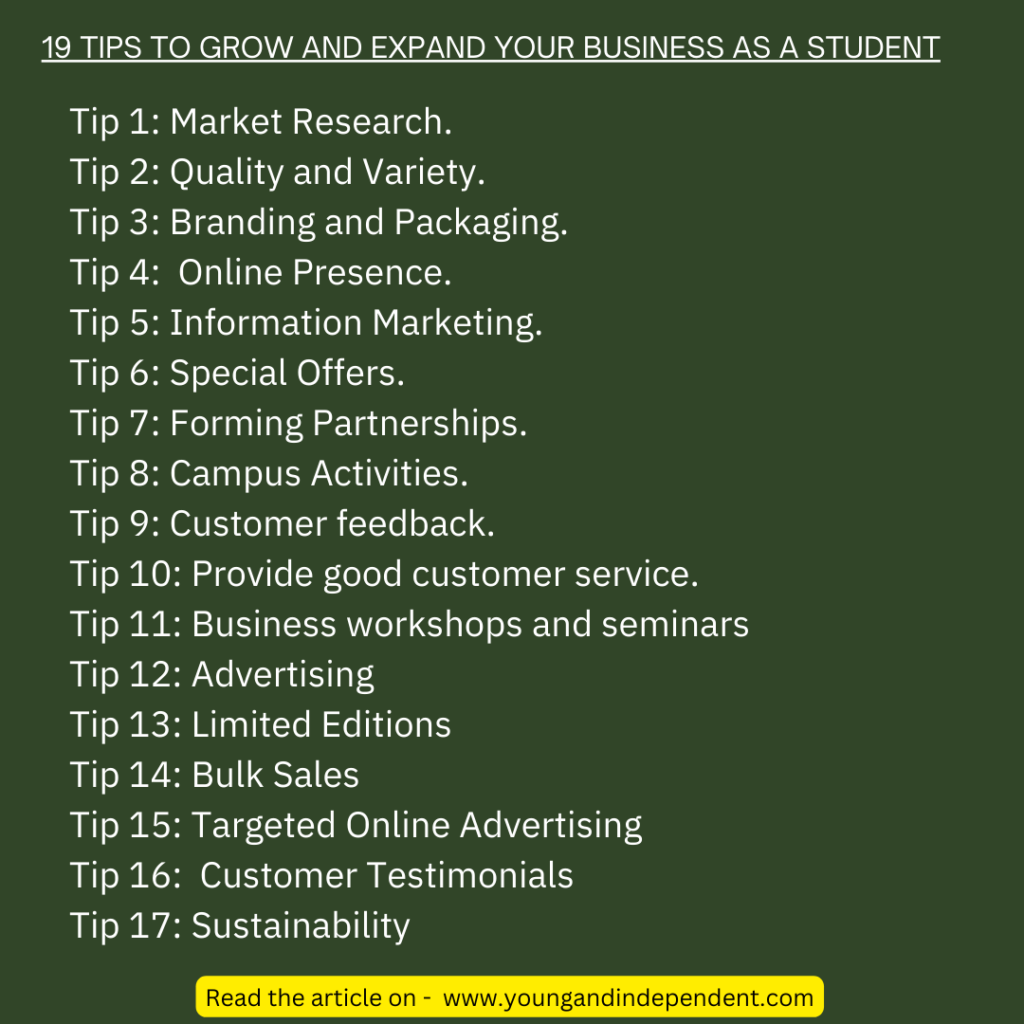At the age of 17, I went to university away from home. As a young woman who had been through six years of boarding school life, the excitement of being on the loose with a certain degree of independence was very appealing.
However, given that my father, who had been our family’s provider, had died two years prior, my financial stability was on a balance.
The truth is that depending on other people who are not your biological parents is always something that cannot be guaranteed.
Today, your uncle, aunt, sibling, or cousin might be your financial provider and support system, and tomorrow, they might decide not to support you anymore, sometimes due to their own hardships or merely because they no longer want to be burdened by you.
Personally, after Daddy died, I accepted the fact that life would never be the same and that I had to step up and take responsibility for my livelihood.
So at 17, I started my small business at the university. No amount of money was too small for me as long as I was selling above my cost price.
It’s a terrific idea to start a business while you’re still in school, and if you’re looking for a niche market to target, selling male knickers on campus may be it.
If you have your little business and you need some advice on how to grow that business, you should consider implementing any or all of the following tactics to expand your business and increase your income:
17 Tips To Grow and Expand Your Business as a Student

1. Market Research:
The first thing to do is conduct market research to gain an understanding of the tastes, purchasing patterns, and requirements of your target audience. Students are usually easy to chat with. You can just ask them!
In order to match your services to the market, conduct research, hold interviews, and pay attention to trends—what’s everyone wearing?

2. Quality and Variety:
In order to appeal to a wide range of client tastes, you should have a selection of high-quality goods in a variety of designs, sizes, and materials. It really is about casting your net very wide in order to increase your chances of catching many fish (metaphorically speaking).
3. Branding and Packaging:
Think up a distinctive name for your business, design a logo for it, and package it in a way that will resonate with your demographic. Young people like “swagger”. They like to identify with eye-catching brands that have the potential to gain popularity or perhaps are already popular. I encourage you to play around with the free version of Canva.com.
And if you’re unable to design your own brand, you can get a graphic designer on campus or on an app like Fiverr.com for a bit of money.
The worth of your items may be seen as higher if they are packaged in a professional manner.
Do not neglect this step. I personally use AliExpress or Alibaba.com to brand my business-related packaging.
4. Online Presence:
This is the one thing that businesses are all jumping into and fighting on a daily basis to top the charts for. Students are always on their phones, and meeting them where they spend most of their time will be a great idea.
Which is why you must establish an online presence by creating social media accounts (Facebook, Instagram, TikTok, WhatsApp, Snapchat, YouTube, and Twitter) and an e-commerce website to promote your items, provide interesting products, and make it easier for customers to place their orders online.
5. Information Marketing:
Produce information that is both useful and interesting in relation to the products you are selling, such as sizing recommendations, comparisons of different fabrics, and fashion advice.
This might pique the interest of prospective consumers and demonstrate your authority in the field.
Young people are fond of content that piques their curiosity or speaks directly to them. Being able to provide valuable information will make a big difference for your business.
And for you to achieve this, you probably would have to expand your knowledge and express yourself as a subject matter expert. The more confident you are when talking about what you sell, the more customers will trust you with their money.
6. Special Offers:

Everybody loves a freebie, and students in particular love the idea of giveaways. Which is why I encourage you to make the sacrifice to get ahead in your business.
Make special offers, bundle discounts, or loyalty programmes to incentivize repeat purchases and attract new consumers.
7. Forming Partnerships:
So many people don’t understand the power of collaboration. As a business owner, think about the big picture and how you stand to benefit from collaborations.
Do not, I repeat, do not fall into the scarcity mindset whereby you think there’s not enough to go around, so you have to be in constant competition with others to be the first.
I am not saying competition is a bad thing; however, I want you to also consider working together with other students who have businesses on campus, local stores, or social media influencers to cross-promote each other’s products and services in order to broaden your customer base and increase sales.
8. Campus Activities:
If you want to build a strong brand identity on campus, you have to participate in campus activities to directly interact with your target demographic and talk about your products and services.
You may either arrange these events yourself or participate in them. Being shy or distancing yourself from other students will only hurt your business.
9. Customer feedback:

Every student that buys from you has to become your new bestie (just kidding). But seriously, you would have to build some sort of rapport with those who buy from you.
Asking for a feedback should become second nature to you. Make your customers feel seen, heard, and valued by asking them for input about your product or service.
10. Provide good customer service:
The tenth and last point on the list is to provide good customer service by being attentive, helpful, and accommodating to client inquiries and concerns.
Always strive to resolve any issues as soon as possible, and use customer feedback to enhance the quality of your products and services. You sure know how a simple bad comment from one student’s mouth to another’s ear can start a chain of negative publicity for your business and ruin everything.
11. Business workshops and seminars:
Have you ever heard the quote “YOUR NETWORK IS YOUR NETWORTH” Participating in business workshops, seminars, and local entrepreneur meetups is a great way to network with other entrepreneurs and learn insights on how things work in the particular environment in which you operate.
Listen, you are not too young to become a business mogul. Look at your business as something that you want to do long-term and approach it with that mindset.
12. Advertising:

I am pretty sure you have noticed posters around the school campus that are aimed at communicating an event or promoting a product or service to students.
You can always follow suit and advertise locally by putting up posters, fliers, and advertisements in key spots around the campus. This will help more people become aware of your products.
There’s also a concept in marketing called “share of mind,” and I’d recommend that you push hard to be the only brand that students remember when they think about the product or service that you offer.
I know that you are already doing a lot of posting on social media handles; however, an extra strategy will only boost your brand awareness, which could easily turn into loyal customers.
13. Limited Editions:
Allow me to assume that you’re familiar with the concept of scarcity.
The truth is that most people love exclusivity, which is why you should introduce limited-edition designs, seasonal collections, or one-off services to generate a feeling of urgency and exclusivity among your customers.
Students are not immune to this business strategy; take your shot and analyse the data to see for yourself!
14. Bulk Sales:
In economics 101, the more you can sell, the bigger your sales and your profit.
Selling your product or service as a bulk offering to student organisations, sports teams, or clubs by offering bulk discounts for a set amount of orders placed by teams or groups will definitely be a tempting offer, if you ask me.
Before you dismiss the idea, why not try it out? After all, we don’t get what we don’t ask for, and moreover, if you don’t try, how can you know that it doesn’t work?
15. Targeted Online Advertising:
If you want to reach potential clients outside of your campus, you should use focused online advertising on social media platforms and search engines.
Facebook and Google AdSense are great tools for targeted advertising. If you’re in doubt, just do a bit more research and get some help if you need to.
With $5, you can run a Facebook ad that reaches thousands of potential new customers, and your return on that money will know no bounds.
Why limit your business when there are options for you to explore and become known as the campus business mogul? Besides having more money in your wallet, imagine the respect you’ll get from your peers and even your teachers.
16. Customer Testimonials:
Displaying good reviews and testimonials from customers on your website and social media channels is an excellent way to develop trust and confidence in your business.
Use Canva.com to display your testimonials, or simply sharing screenshots of WhatsApp messages could do the trick too.
17. Sustainability:
This generation of youngsters is obsessed with saving the planet. They have bought into the climate change narrative so much that they’ve all become militants for Mama Earth.
And because of this, businesses that serve this age group are doing their best to reflect their brands as less harmful to the earth.
You should definitely tap into this developing trend that might attract clients who are aware of the environment to your business. Think about providing alternatives for your product or service that are eco-friendly or sustainable.
To conclude this article, I urge you to keep in mind that establishing a successful business requires both time and work.
I know that you have books to read, classes to attend, and exams to write; however, if you have decided to become a business owner, I believe that you are willing to do what it takes to make it work.
So, stay adaptable, be open to learning, and continuously seek opportunities for improvement. As a student entrepreneur, one of the most important things you can do is learn to efficiently manage your time so that you can focus on both your schoolwork and your businesses.